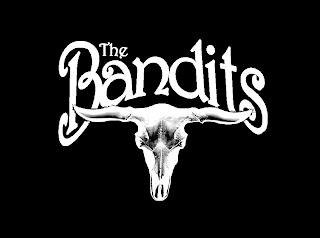
Tuesday, March 25, 2008
Look back in Anchor

Tuesday, March 18, 2008
What it is ain't exactly clear



 "For What It's Worth" is a song written by Stephen Stills, American guitarist, singer-songwriter and member of the folk rock supergroup Crosby, Stills, Nash & Young, and first recorded by Buffalo Springfield – the short-lived but influential folk rock group that served as a springboard for the careers of Neil Young and Stills – and released as a single in January 1967, peaking at #7 on the Billboard Hot 100 chart. In 2004, this song was voted #63 on Rolling Stone magazine's list of The 500 Greatest Songs of All Time.
"For What It's Worth" is a song written by Stephen Stills, American guitarist, singer-songwriter and member of the folk rock supergroup Crosby, Stills, Nash & Young, and first recorded by Buffalo Springfield – the short-lived but influential folk rock group that served as a springboard for the careers of Neil Young and Stills – and released as a single in January 1967, peaking at #7 on the Billboard Hot 100 chart. In 2004, this song was voted #63 on Rolling Stone magazine's list of The 500 Greatest Songs of All Time.As the song's title appears nowhere in its lyrics, most casual listeners know it better by the first line of chorus: "Stop, children, what's that sound? Everybody look what's going down."
While the song has come to symbolize worldwide turbulence and confrontational feelings arising from events during the 1960s, particularly the Vietnam War, Stills reportedly wrote the song in response to the escalating unrest in the Sunset Strip curfew riots, also known as the "hippie riots," which were a series of clashes that took place between police and young club-goers on the Sunset Strip in Hollywood, California, beginning in the mid-1960s and continuing through 1969.
"For What It's Worth" has been covered countless times, as well as sampled, referenced, and used in film and other media. One notable reference was in the1998 song "He Got Game" by Long Island, NY, hip hop music group Public Enemy which not only samples "For What It's Worth", but also features Stephen Stills re-performing the bridge especially for that track. Others contend that the most popular version was that which was performed on a 1978 episode of The Muppet Show, which re-writes the song with animals singing slightly altered anti-hunting lyrics and contains a musical interlude filled with hunters wildly shooting their guns while animals (from Emmett Otter’s Jug Band) hide and take-cover. Yeah, the symbolism is heavy, dig it.
See you backstage at Tuck Shop for the Quiet Set this Wednesday and Thursday from 9.00 pm.
Wednesday, March 12, 2008
Don't anyone wake me, if it's just a dream
 Known for his unique guitar-on-lap playing style and blues-oriented vocals, blind Canadian jazz and blues-rock guitarist and vocalist, Jeff Healey (25 March 1966 – 2 March 2008) began as a teenage musical prodigy – though known primarily as a guitarist, Healey also played trumpet and clarinet during live performances – but later rightly rose to stardom as the leader of the Jeff Healey Band, a rock-oriented trio that gained international acclaim and platinum record sales with the 1988 album "See the Light” which included the hit single "Angel Eyes."
Known for his unique guitar-on-lap playing style and blues-oriented vocals, blind Canadian jazz and blues-rock guitarist and vocalist, Jeff Healey (25 March 1966 – 2 March 2008) began as a teenage musical prodigy – though known primarily as a guitarist, Healey also played trumpet and clarinet during live performances – but later rightly rose to stardom as the leader of the Jeff Healey Band, a rock-oriented trio that gained international acclaim and platinum record sales with the 1988 album "See the Light” which included the hit single "Angel Eyes."Refusing to be hampered by his blindness, a young Healey taught himself to play guitar by laying the instrument across his lap, and subsequently shared the stage regularly with guitar greats such as the late George Harrison and Stevie Ray Vaughan – who discovered him in the late 1980s –, as well as legendary bluesmen Mark Knopfler and B.B. King.
See you at The Quiet Set at Tuck Shop on Wednesday and Thursday from 9.00 pm.
Tuesday, March 4, 2008
It’s always been the same, same old story

 "Father and Son" is a popular song written and originally performed by English musician, singer-songwriter, educator, philanthropist and prominent convert to Islam, Cat Stevens (now known as Yusuf Islam) on his 1970 album Tea for the Tillerman.
"Father and Son" is a popular song written and originally performed by English musician, singer-songwriter, educator, philanthropist and prominent convert to Islam, Cat Stevens (now known as Yusuf Islam) on his 1970 album Tea for the Tillerman.Although not initially released as a single, "Father and Son" received substantial airplay on progressive rock and album-oriented rock radio formats, and played a key role in establishing Stevens as a new voice worthy of attention.
In 2003, Tea for the Tillerman was ranked number 206 on Rolling Stone magazine's list of the 500 greatest albums of all time, and in 2007, it was also included in the list of "The Definitive 200 Albums of All Time", released by The National Association of Recording Merchandisers and the Rock and Roll Hall of Fame.
